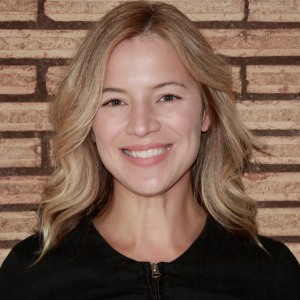Interview With Dr. Jill Dolata of Pacific University

Jill Dolata is an Assistant Professor in the Department of Pediatrics at Oregon Health & Science University, and she is also a member of the faculty in the school of Communication Sciences and Disorders at Pacific University. Dr. Dolata’s clinical expertise and research focus on assessment of young children who are at risk for neurodevelopmental disorders. In collaboration with the Center for Spoken Language Understanding, she partners with computer scientists who are exploring quantifiable differences in language development.
Note: You should consult with your doctor or speech pathologist for recommendations on treatment. The views and opinions expressed in this article are those of Dr. Dolata and do not necessarily reflect the official policy or position of SpeechPathologyMastersPrograms.com
How did you become interested in social communication’s influence on early language development?
As an early career Speech-Language Pathologist, I was interested in the foundations of language development and the factors that influence language learning. It became incredibly clear to me that early social development was intrinsically related to language development, and that this thing we call “social communication” is nearly impossible to separate from language development more generally.
What are some of the most important things we have learned in the past couple of decades about the relationship between social communication and language development?
Joint Attention is a concept that has only relatively recently been studied as a critical building block for communication. This ability to share focus on an object with another person seems to be an indicator for early social development and related to early word learning. This understanding has resulted in a broadening of therapy goals to support social development as a key factor in language development.
How has this helped us better assess those with language development needs?
I think a focus on social communication in a traditional language assessment is incredibly important and supportive to the family. When children communicate, it is for a reason: requesting, responding, protesting, commenting, etc. Traditional language assessments may only describe some of those communicative functions (primarily responding). We have learned that in order to provide a more comprehensive description of a child’s language, we need to assess more broadly.
What are the challenges to ensuring that those with neurodevelopmental disorders get the help they need with language development?
First, we need to ensure that assessments are doing what they are supposed to do: accurately describing the abilities and challenges of a diverse population of children. We have disparities and differences in the way assessments function and the ways in which scores are interpreted; this is an ongoing challenge for providers. Another challenge for children with neurodevelopmental disorders is that there are often needs in addition to language development; providers must coordinate care and utilize a team-based approach to effectively meet each family’s priorities.
How do you choose new research projects to take on?
What a great question! This question highlights the exciting field of language development and variety of questions we can ask. When I consider a new project, I try to ensure that there are stakeholders who would benefit from having the results. I consider the feasibility of the project and the overall impact the project could have. I consider my students’ interests and my collaborative partnerships within and across universities.
What aspect of your research makes you most proud?
There are two aspects of my research that give me pride. First, I am proud to be working on a project that will support identification of children with Autism Spectrum Disorder. Possible outcomes for the project include increased efficiency for diagnostic referrals and support for pediatricians and teachers who regularly conduct screenings. I am also proud of the collaboration in my research. My current research partners include pediatricians, computer scientists, psychiatrists, special educators, speech-language pathologists, and graduate students in these domains. I believe collaboration in research is one way to create bridges between fields and share knowledge more widely.
What is your advice to future speech pathologists?
Take your time! While specialization is important, realize that many of the concepts you learn in graduate school can be widely applied across setting, condition, and lifespan. Soak everything in during graduate school and your clinical fellowship with an open mind, realizing that the field is broad and you may find yourself on a path you didn’t imagine!
Sponsored online speech pathology programs

Online MS: Pursue SLP Certification. Study FT/PT
Speech@Emerson enables you to earn an MS online and pursue SLP certification in as few as 20 mos. Learn the same curriculum as the on-campus program. Study FT or PT.
- Prepares you to pursue certification as an SLP generalist
- In-person clinical placements at faculty-approved partner sites
- As few as 20 months to complete
AD

Want to Become an SLP? Earn an MS Online at NYU
NYU Steinhardt’s online master of science program in Communicative Sciences and Disorders prepares aspiring speech-language pathologists with a comprehensive professional education.
- Prepares students to pursue SLP licensure
- Accredited by ASHA’s Council on Academic Accreditation
- As few as six terms to complete
- Full-time and part-time plans of study
AD

Online MS in Speech-Language Pathology from Pepperdine University
Pepperdine University’s online Master of Science in Speech-Language Pathology program combines a robust, innovative curriculum rooted in Christian values with a full-time or part-time option that features online learning, on-campus intensive experiences, and comprehensive clinical field practicums to prepare skilled, compassionate students for careers as speech-language pathologists.
- Full-time (five trimesters) or part-time (eight trimesters) options available.
- No GRE scores required.
- 400+ supervised, clinical learning hours are done at schools/clinics local to students
- Three onsite experiences build a sense of camaraderie and community throughout the program
AD

